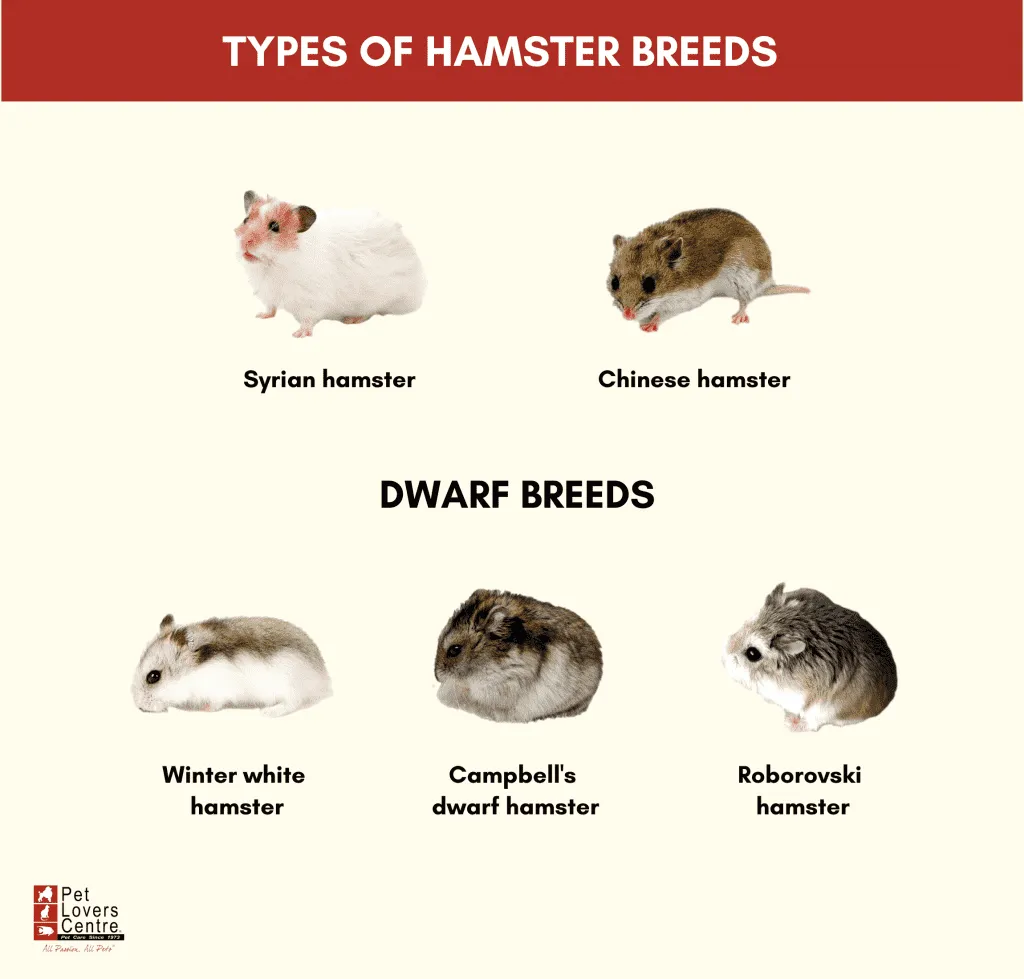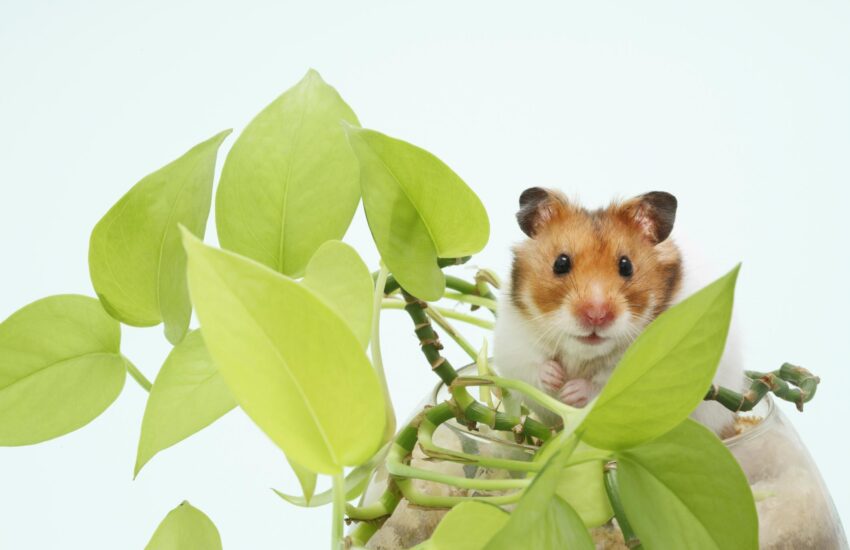Characteristics of Syrian Hamsters
Syrian hamsters, known for their adorable appearance and friendly demeanor, are one of the most popular pet choices for small animal enthusiasts. They are a unique species with specific traits that make them stand out from other hamster breeds. In this article, we will explore the key characteristics and care requirements of Syrian hamsters, helping potential owners understand what makes these little creatures so special.
Physical Traits of Syrian Hamsters
Syrian hamsters are recognized for their distinct physical characteristics. Adult Syrian hamsters typically weigh between 120 to 200 grams and measure approximately 15 to 18 centimeters in length. One notable feature is their cheek pouches, which can expand significantly, allowing them to store food. Their fur comes in various colors and patterns, such as golden, cinnamon, and panda, enhancing their charm. Another aspect to consider is the variety of coat types, which can range from short-haired to long-haired varieties.
Size and Weight
As mentioned earlier, Syrian hamsters grow to a size that makes them manageable pets. Their weight remains consistent throughout their lifespan, though they might fluctuate slightly based on diet and care. It is essential for owners to monitor their pet’s weight, as obesity can lead to health complications. It’s beneficial to compare their weight stats regularly, using household scales for routine checkups. A healthy Syrian hamster should have a defined shape, and owners should be cautious with overfeeding to maintain their well-being.
Fur Variations and Colors
One of the most fascinating things about Syrian hamsters is their diverse fur variations. They may have **short, medium, or long fur**, with textures ranging from soft and fluffy to sleek and shiny. The predominant fur colors include a stunning golden-brown hue, which is classic for the breed, and unique variations including black, white, and even banded patterns. Understanding these different fur types and colors can also help pet owners choose their ideal pet while appreciating the natural beauty of these hamsters.

Behavioral Traits and Personality
Behaviorally, Syrian hamsters are known for their playful and curious nature. Unlike some dwarf hamster species, they are generally more solitary and prefer to live alone. Understanding these behavioral traits can help potential pet owners prepare for their new companion’s needs. Many owners note that their Syrian hamsters display unique personalities, whether it’s a habit of hoarding food or their affection towards their humans during out-of-cage interactions.
Socialization and Handling
Social interaction is essential for Syrian hamsters. While they can become friendly with human handlers, it’s important to remember their generally solitary temperament. They often require time to adjust to their environment and the presence of humans. Regular handling from a young age is beneficial, allowing them to get accustomed to human owners. Gradually introducing a friendly approach can build trust, ensuring a happy home experience. However, quick movements or loud noises can stress them out, leading to an increase in hiding behaviors.
Playfulness and Toys
Syrian hamsters are naturally playful and require daily stimulation to stay happy and healthy. Engaging toys like tunnels, wheels, and chewable items are crucial for their well-being. Providing a variety of materials can help fulfill their instinctual needs to burrow and explore. Creating an enriching environment with a mix of activities can enhance their physical and mental health, ultimately resulting in a more sociable and active pet. A happy hamster often shows higher energy levels and curiosity, leading to more interactive playtime.
Diet and Nutrition
Promoting proper health in a Syrian hamster goes hand in hand with a balanced diet. Essential components of their diet include quality pellet mixes, seeds, and an occasional treat of fresh fruits and vegetables. Avoiding high-fat treats can prevent obesity, as their small bodies are prone to rapid weight gain. Hydration is equally critical; ensuring they have access to fresh water daily contributes significantly to their overall health.
Essential Nutritional Supplements
In some cases, owners might consider nutritional supplements to ensure their hammies are getting the essential vitamins and minerals. Supplements available on the market can provide additional nutrients, especially during seasons where fresh produce is scarce or less appealing. When introducing new foods, it’s key to do so gradually, monitoring your hamster’s reactions to avoid any gastro-intestinal upsets. Keeping track of what they enjoy can lead to more satisfying meal times.
Common Health Issues
Being aware of potential health issues is vital for any hamster owner. Syrian hamsters can suffer from diabetes, wet tail, and respiratory problems. Early detection plays a critical role in treatment, so regular health check-ups are advised. Love and care, combined with prompt action whenever any health concerns arise, ensure a long and vibrant life for your hamster companion. Ensuring a clean habitat also eliminates common pests that might threaten their health.
Conclusion
In summary, Syrian hamsters are not only adorable pets but also require specific attention to thrive. Their distinct physical and behavioral traits make them a cherished choice among small pet lovers. By understanding and meeting their needs, you can nurture a fulfilling bond with your Syrian hamster, leading to a rewarding experience for both you and your new furry friend.
FAQ
1. What type of habitat do Syrian hamsters need?
Syrian hamsters require a spacious cage with well-ventilated areas and materials for burrowing. Quality bedding is crucial for comfort, alongside toys for environmental enrichment. A habitat that mimics their natural instinct to burrow and explore is essential for their well-being.
2. How do I handle my Syrian hamster properly?
When handling your Syrian hamster, it’s essential to approach with gentle hands. Let them sniff your hand before picking them up. It’s best to support their body fully and avoid fast motions that could startle them. Regular, friendly interactions will help them become accustomed to human contact.
3. How can I tell if my Syrian hamster is healthy?
A healthy Syrian hamster displays clear eyes, clean fur, and normal eating and drinking habits. Regular weight checks and monitoring for unusual behavior, such as lethargy or changes in appetite, also help in identifying any health concerns early.
4. Do Syrian hamsters require companionship?
Syrian hamsters are solitary creatures and prefer to live alone. Introducing another hamster can lead to territorial disputes, so it’s best to keep them in solitary living conditions unless they are babies being raised together.
5. Can I allow my Syrian hamster to roam outside of its cage?
Absolutely! Allowing your hamster supervised playtime outside of its cage is great for mental stimulation. However, create a safe, enclosed area to prevent any escape and ensure their safety during this time. Always watch them closely as they explore.
